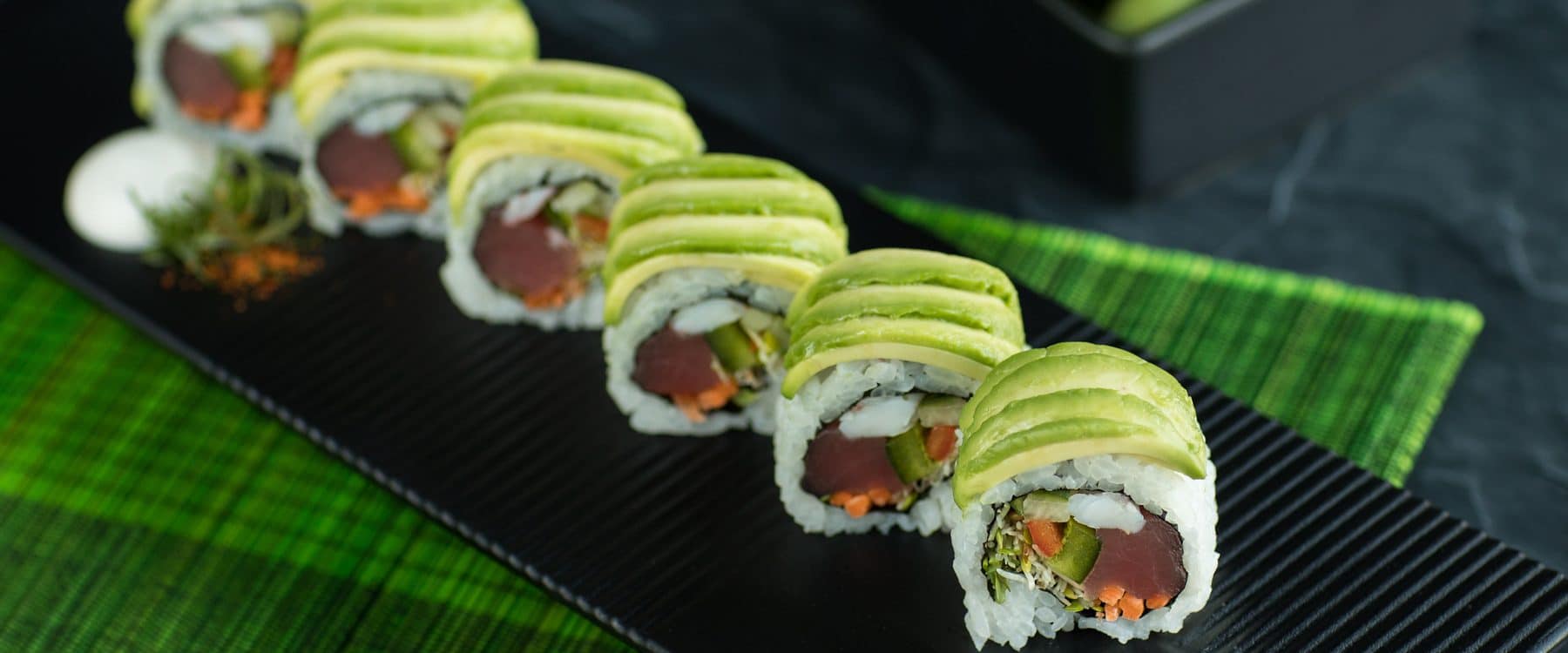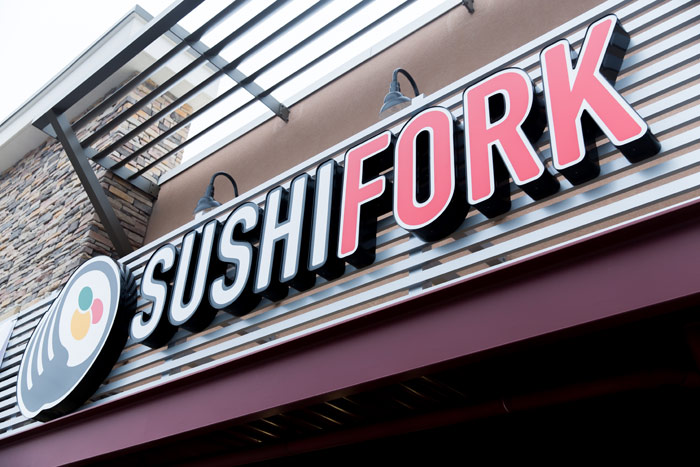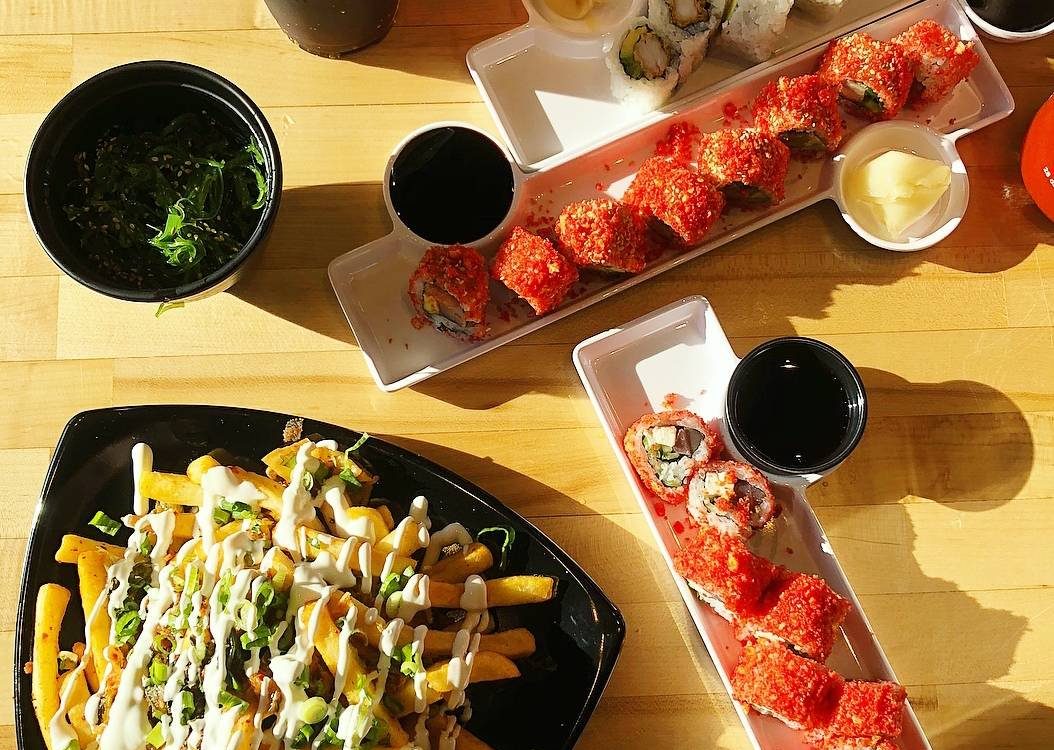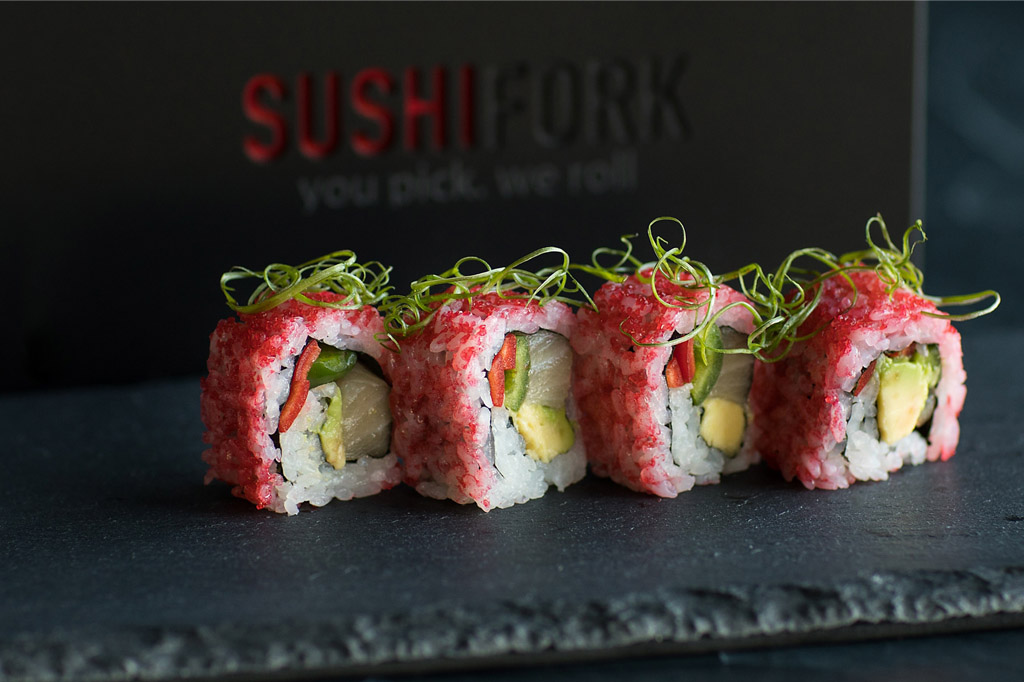
Sushi is a Staple of Japanese and Asian Cuisine – SushiFork
September 7, 2018
10 Surprising Health Benefits of Sushi – SushiFork of Tulsa
October 29, 2018A diet centered around sushi can have many health benefits to most individuals. Many readers may think of a sushi-based diet and think that it is too good to be true; however, there are various facets of scientific data that prove its advantages.
Sushi has popularized in America over recent years, and has gained ground as a nutritious and filling meal that is hailed as a tasty treat, or even a delicacy. Non-believers proclaim their distaste for sushi, citing their inability to consume raw fish. This is actually a common misconception, in that the idea of sushi is actually defined by the rice itself, rather than the fish. Sushi can exist with no seafood at all, and still have health benefits, such as those below.
Sushi is Packed with Protein
In this case, the protein-punched benefit does often come from the fish, but can also come from other common centerpieces of a sushi roll, such as sweet potato. No matter which way you look at it, these bite sized meals pack a ton of protein into your diet.
A well- balanced sushi roll can add the protein your diet needs to help your muscles develop, and are actually commonly eaten snacks for before strength training or during a workout recovery. Salmon and tuna are common main ingredients of sushi rolls, each of which contains vastly more protein than your typical bite sized snack.
Sushi is Brain Food
Many of the types of fish found in sushi rolls contain fatty acids, which is what makes them the “brain food” touted by the old wives’ tales. The Omega-3 fatty acids found in most types of fish and seafood allow your brain to process information optimally, helping us to think more clearly.
Not only does this help your memory, but it can assist any of your brain processes, allowing you to maintain a better outlook on life. Omega-3 fatty acids are believed by many, with scientific links backing them up, to have effects against depression and even Alzheimer’s Disease.
Strength in Veggies
Anyone can enjoy the benefits found in vegan and vegetarian sushi rolls, making them a healthful choice for any eater, regardless of their seafood preference. Many sushi rolls are packed with veggies such as avocado, cucumber, and carrot; in fact, a well-balanced sushi roll will almost always contain some type of vegetable. Vegetarians and omnivores alike may choose to pack their sushi rolls with extra veggies (such as mushrooms, peppers, and daikon), just for the delicious flavors. They are also getting a sushi roll with added nutritional value, along with the added flavor.
Vegetables are so crucial to our diets, especially because of their preventative health properties. Often, vegetables are cited in links to guard against cancer risks. Veggies also are one of our main sources of fiber, and provide much of the nutrition we need in our daily lives.
Sushi and Heart Health
Sushi obviously has many added benefits that make it a great centerpiece for a diet or meal structure. On the other hand, living with a steady sushi diet also means less toxic ingredients in your daily meals – especially including red meat. While others may be out enjoying a burger, however delicious, the red meat is known to clog arteries and have endless negative risks on the human heart. Enjoying a nice sushi meal at a sushi restaurant instead not only avoids these potential dangers, but gives relief to your heart with the nutritious fish and vegetables found in the sushi roll.





